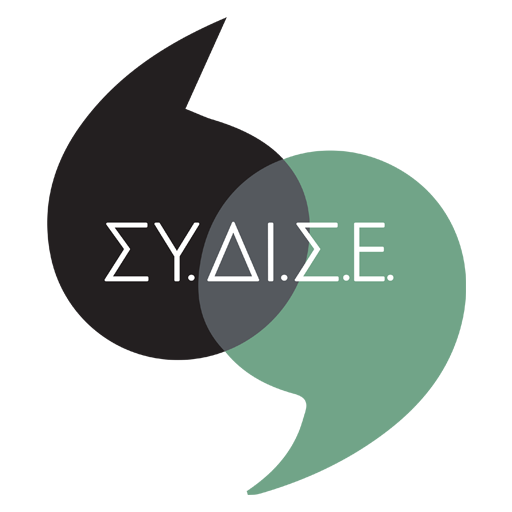As a rule, a team of interpreters consists of at least two interpreters for each language and booth. In exceptional cases, provided that the principles of quality and health are fully taken into account, a single interpreter may work on his/her own for one (1) hour max. per day, in the case of simultaneous interpreting or chuchotage, or three (3) hours a day in the case of successive interpreting. Two interpreters can work up to eight (8) hours max. a day. Working time should include at least two coffee breaks of 15 minutes each, and a lunch break of at least one (1) hour. Beyond eight (8) hours, three (3) interpreters per language combination are needed. See Article 13 below for the line-up of the team of interpreters per type of conference interpreting. Interpreters must only work with professional colleagues.
Working hours
The assignment start time means the start time given in the schedule/programme even if the start of the conference is delayed for reasons not due to the interpreter’s fault. When the working time is up, the leader of the interpreters’ team should inform the person presiding over the event of this matter and 15 minutes later the interpreters must stop work.
Any overtime is payable by the organiser. Interpreters reserve the right to refuse to do overtime if they consider that, due to exhaustion, they are not able to function properly.
Simultaneous interpreting system
Where the installation and operation of the simultaneous interpreting system is not the responsibility of the interpreters following a special agreement made with the organiser, the latter is obliged to provide the said system which must be in accordance with cutting-edge international standards. Interpreters bear no liability for the performance of the equipment or for technical support, and reserve the right to refuse to work if the system offered is outdated, incomplete or does not operate properly, and if the space is considered unfit for working in (if there is no line of sight to the panel of speakers, it is narrow, dark, smells, etc.) but that does not release the organiser from the financial and other obligations that have been agreed.
Videos, films and quotations
Interpreting must be provided solely from and into the languages that have been agreed. Films or videos screened during the event will not be translated unless the sound reaches the interpreter’s console in the booth and, prior to the date of the conference, the interpreters were sent the videos and/or a transcription thereof. Quotations from authors, extracts from books, poems or verses of songs will not be translated unless the interpreters have been provided in advance with the original along with a valid translation. Moreover, interpreters do not translate on guided tours which are not included in the interpreters’ working hours. Interpreters do not translate on tourist activities and/or private conversations during breaks or rest periods in the interpreters’ working hours.
Recording
It is strictly prohibited to make recordings of the interpretation. Interpreting is an oral translation to be heard there and then and is the interpreter’s intellectual property. Where the organiser wishes to have such a recording, prior permission from the leader of the interpreters’ team (if applicable) must be requested, who is obliged to obtain the oral consent of all interpreters working at the specific conference. In the event of web streaming or broadcasting, written consent from the interpreters must be obtained since the interpreter’s voice constitutes personal data in accordance with the General Data Protection Regulation (GDPR), in addition to the other applicable intellectual property rights which the interpreter has.
Meals
The cost of meals, coffee, etc. for interpreters during their hours of work at the event are to be paid by the organiser alone.
Away from base
Where a conference is held away from the interpreters’ base, organisers are obliged to cover the cost of the outward and return journey, the cost of getting to and from the conference venue/their place of residence and any local travel by interpreters if done in the context of their assignment. Note that the means of transport used by interpreters to travel to/return from the assignment is as a matter of priority the fastest one unless the interpreter expresses a clear wish to the contrary. Moreover, where interpreters travel to the venue using their own means of transport at their own choice, the organisers are obliged to cover the cost of fuel and tolls based on an invoice submitted by the interpreters. Organisers are obliged to provide interpreters with accommodation, preferably in the same hotel where the delegates are staying and/or where the conference is taking place, which shall be first class accommodation if available, or similar lower class if not, which is to say they shall provide a single room per interpreter and full board. If due to the time of itineraries or decision by the organisers the interpreters are obliged to arrive at the place of work anything from 24 hours to 3 hours before the start of the conference, the organisers are obliged to cover the cost of accommodation and meals for the interpreters. Where interpreters are obliged to miss out on an entire working day or part thereof due to travel from and/or to the conference venue, the organisers are obliged to pay the relevant compensation for the travel day (manque à gagner).
Away from base means a distance of 25 km from Syntagma Sq. for Athens or the corresponding square from which distances in km are measured in other cities or within the boundaries of the prefecture where the interpreter lives. In that case, payment of the cost of accommodating the interpreters at the conference venue or alternatively of travelling to and returning from the venue on the same day must arranged with the organisers. In all other cases, the points made in the previous paragraph apply.
Special clause on air travel
When interpreters travel by air in the context of their professional duties, they must travel of scheduled flights. The full cost of travel must be covered by the client, including the cost of the interpreters getting to the airport.
In special cases where there are no scheduled flights or there are no seats on them, if the interpreters agree, they may travel on so-called low-cost carriers. Interpreters shall be specifically entitled to require that the cost of carrying a normal size bag (15 kg) and the cost of a light meal (for flights of up to 2 1/2 hours) or normal meal (in the case of flights over 4 hours) be added to the cost of the ticket.
In addition, where a flight or flights is/are delayed or cancelled by the carrier without notice, that constitutes “force majeure” and does not under any circumstances affect the terms agreed with the client (including the terms relating to fees). In that case, the interpreters and/or client are obliged to seek out the fastest alternative way of getting the interpreters to their destination, if that is possible. All costs associated with the interpreters staying in hotels, additional meals and issuing additional airline tickets shall be paid by the client and under no circumstances by the interpreters, even if the latter cannot reach the destination of their professional assignment in good time.
Force majeure
In cases of force majeure (strikes, stoppages of work, marches or demonstrations that block traffic, cancelled or delayed itineraries, etc.), interpreters bear no liability, but shall make concerted efforts to get to the work venue as soon as possible.
Teams of interpreters
Due to the physical and mental fatigue that continuous concentration provoke, certain mandatory restrictions apply to the line-up of teams to ensure the optimal quality of the work provided.
The minimum number of interpreters required to set up a team takes account of those restrictions, and the type of interpreting, the number of languages involved, the facility interpreters comprising the team have in those languages, the nature of the conference, its duration and the workload.
Successive interpreting
As stated above, interpreters can work on their own only for up to three (3) hours of work a day. Whole day events (lasting eight (8) hours require two (2) interpreters. Suitable audio conditions and note-taking facilities must be ensured for interpreters engaged in successive interpreting.
Chuchotage
The rules applicable to simultaneous interpreting (see below) also apply to chuchotage. Chuchotage is to be provided strictly to up to two (2) listeners.
Simultaneous interpreting
Teams of interpreters must be set up so as to avoid the systematic use of relay languages to the greatest extent possible. As a rule, a team of interpreters consists of at least two (2) interpreters for each language and booth. That is done to ensure satisfactory coverage of all language combinations and the required degree of quality.
Table: number of interpreters for simultaneous interpreting
| No. of languages used in the conference hall | No. of booths | No. of interpreters(1) |
| Conference with one language combination | 1 | 2* |
| Conference with two language combinations | 2 | 4* |
| Conference with three language combinations: | 3 | 6* |
And so on and so forth: Each booth operating non-stop must have at least two (2) interpreters.
Notes: * The number of interpreters rises when the working day exceeds eight (8) hours (including breaks and meals) and/or when the conference includes the presentation of a large number of written announcements and/or the topic is technical and/or scientific and requires a significant degree of preparation.
** The working conditions stated apply to the free market. In the case of work for international organisations where there is a larger number of booths and/or interpreters, any more favourable working conditions applicable in that working environment take precedence.
Tour guide system/bidule
Simultaneous interpreting without an interpreting booth using a bidule or suitable tour guide system is a form of simultaneous interpreting that should be avoided due to the innate difficulty of producing the requisite high quality of interpreting and also because it results in considerable brain fatigue and increases the cognitive load for interpreters as a result of the lack of a suitably insulated space in which the interpreters can work, and due to aggravated acoustic conditions. This practice should only be employed in exceptional cases namely:
- Visits to plants, hospitals and similar institutions or remote on-site visits.
- Short visits (lasting up to two (2) hours).
- Events with a limited number of participants (around ten for example).
To enable interpreters to work effectively, suitable dual channel equipment is needed (in other words with two broadcasting channels: One channel from the interpreters to the delegates and one from the speaker’s microphone to the interpreters’ headsets). It is recommended that such equipment comply with the IEC914 standard or any corresponding subsequent standard.
It is not permitted to use bidules or tour guide systems in venues where an interpreters’ booth and translation system for simultaneous interpreting can be installed and for events in conference venues that last more than two (2) hours.
Remote interpreting
Remote interpreting is permitted where the necessary technical requirements for it to be done properly, as laid down by internationally recognised associations or unions of conference interpreters, are met. Due to the increased cognitive load interpreters face from this specific type of simultaneous interpreting, the working day for remote interpreting must not exceed four (4) hours a day max. including breaks lasting 20-30 minutes in total. For the interpreters those four (4) hours of work a day are full-time work and not part-time work under any circumstances. The working conditions for simultaneous interpreting also apply to remote interpreting (see Article 1 above of the Code of Conduct) and so interpreters should work in pairs for up to four (4) hours a day, and after four (4) hours a third interpreter should be added[2]. It is recommended that remote interpreting be done in a suitably equipped venue (such as a hub) with technical support and not in venues that are not suitably equipped. This is because of the various barriers that could arise (poor sound quality from the speakers, absence of technical support for the interpreters, inadequate internet speeds, internet at interpreter’s home cutting out, etc.). The fee for remote interpreting must be higher than that for traditional simultaneous interpreting (booth, translations system),
Cancellation of work contract by the interpreter
Members of the Association should not withdraw from a work contract unless they can:
a) notify the organisers in time.
b) provide valid reasons and suggest a replacement to the lead interpreter in charge of the team line-up or where there is no lead interpreter, directly to the conference organisers, unless they prefer to recruit the replacement themselves.
c) secure in all events approval from the conference organisers of the change as soon as possible.
Cancellation of work contract by the organiser
The work contract must include a clause which covers, where appropriate, possible cancellation of the assignment by the organisers.
Unpaid work (voluntary work)
When members provide their services free of charge at charitable or humanitarian conferences, all terms of the Code of Conduct and these Guidelines on Working Conditions must be complied with.
Non-Working days
Contracts must include a clause covering non-working days, and travel days, adjustment days after a long journey and briefing days, as appropriate.
Travel
Interpreters’ contracts must include a clause covering travel arrangements, where appropriate.
Remuneration at 50% of the daily rate shall be payable for travel days involving travel by car away from the interpreter’s base and travel by air before 17:00 hours and/or journeys lasting up to 5 hours whereas in the case of journeys lasting over 5 hours remuneration shall be at the full rate.
Rest days
Travel conditions must be such as not to prejudice the health of interpreters or the quality of their work after the trip. After any long journey or after a journey involving a major change in time zones, rest days must be provided and it is recommended that two (2) interpreters be present to cover all eventualities, even in the length of work does not exceed one (1) hour a day. Remuneration at 50% of the daily rate is payable for rest days.







